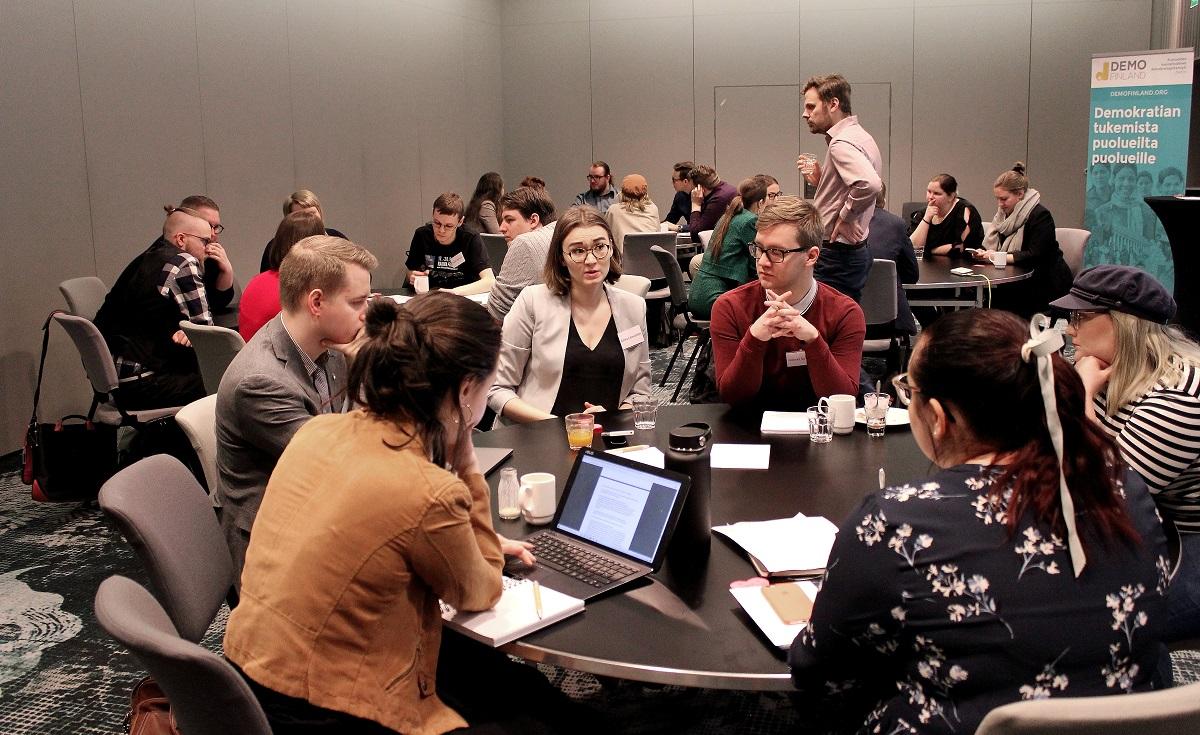2020 was an exceptional year, but COVID-19 did not stop our work for democracy. Together with our partners, we created spaces for multi-party dialogue, strengthened the capacities of politicians and supported political parties in enhancing inclusivity.
The Annual Report 2020 presents the results of our work. In 2020, our work continued in Finland, Ethiopia, Mozambique, Myanmar, Sri Lanka, Tunisia and Zambia. We also took a step further in our work for inclusive democracy as we started to support disability inclusion in politics in Kenya and Zambia.
Highlights of our results
70% of the Tunisian School of Politics alumni indicate that they collaborate with other political actors at least once monthly, compared to 48% in 2016. According to an external evaluation, another relevant achievement of the programme is the strengthened capacity of alumni to be active in their parties and to advance in their careers.
One-on-one capacity building trainings were implemented for altogether 97 Zambian women councillors. The councillors were also given guidance on how to engage the electorate on various developmental programmes contained in their work plans. This enhanced their accountability heading into the 2021 elections.
The Myanmar School of Politics managed to create a safe space that reinforced dialogue, inclusive policy-making and an enabling environment for political parties at the sub-national level in the form of the Multi-Party Dialogue Platform of Shan State.
A network of 40 women local councillors was established in Sri Lanka to support women politicians in a multi-party setting. The network has members from the main two language groups, from six provinces, 12 districts, 34 local councils and 11 political parties.
95% of the Finnish Democracy Academy participants evaluated that they can apply their increased knowledge and skills on the 2030 Agenda and democracy in the future.
Read more in our Annual Report 2020.

